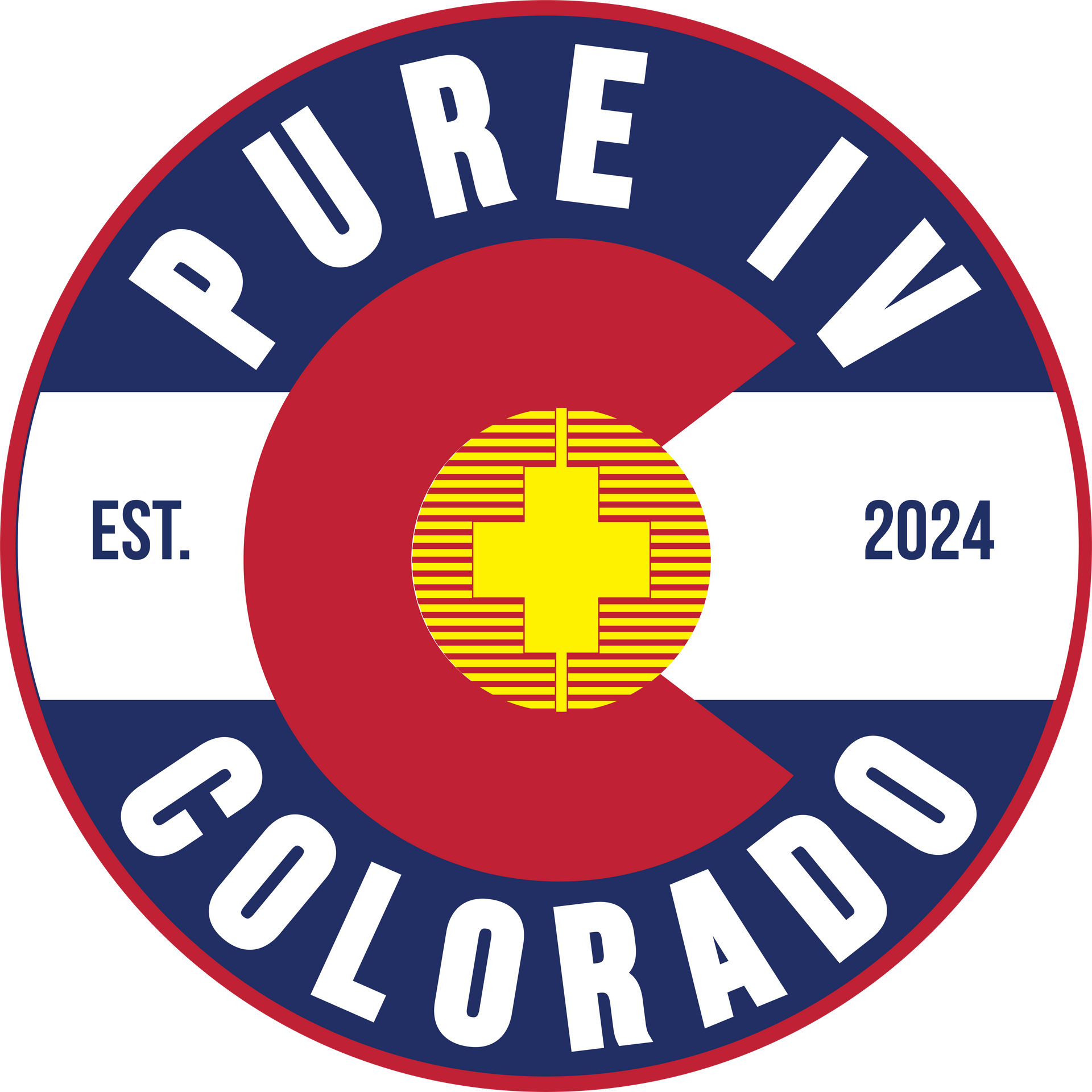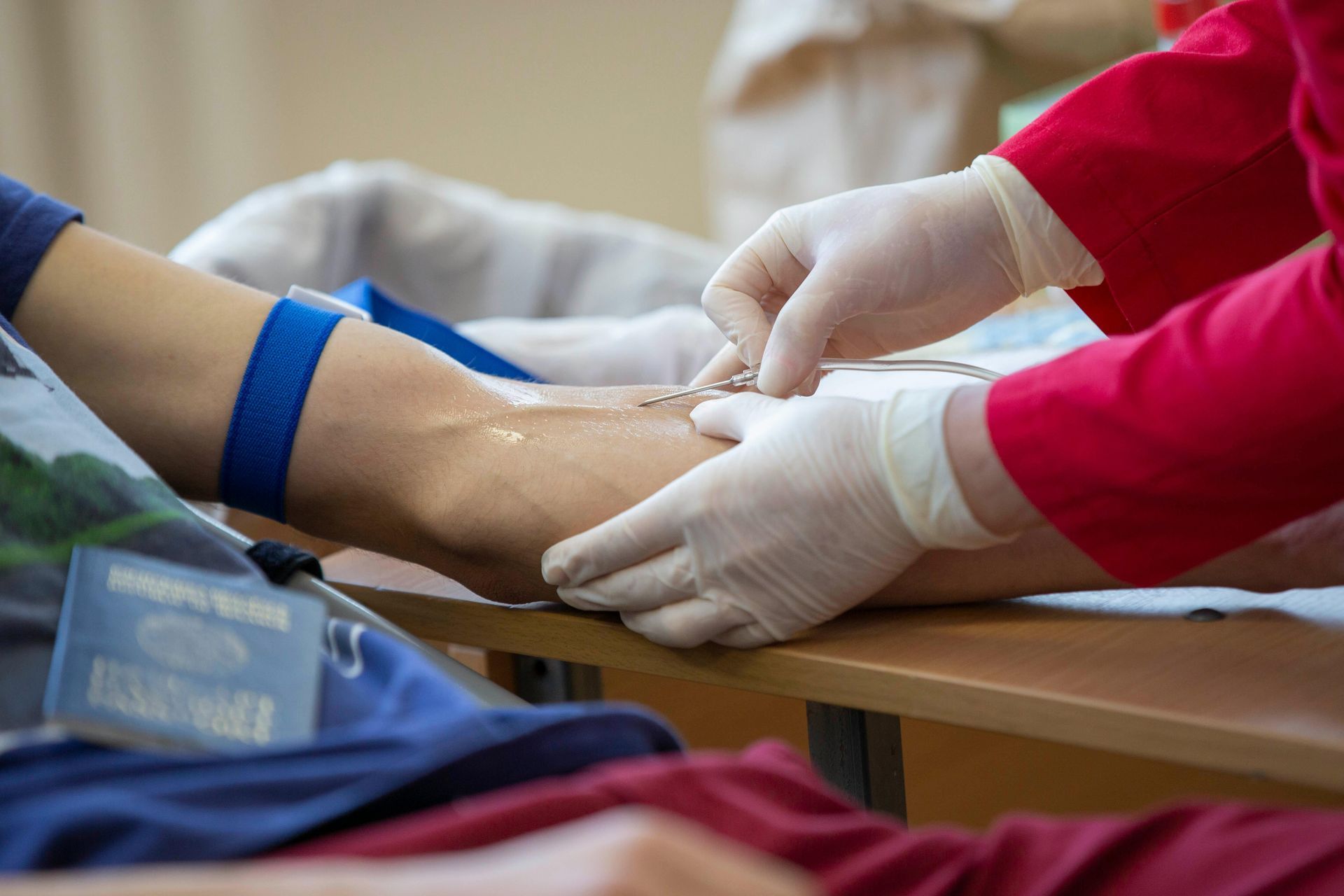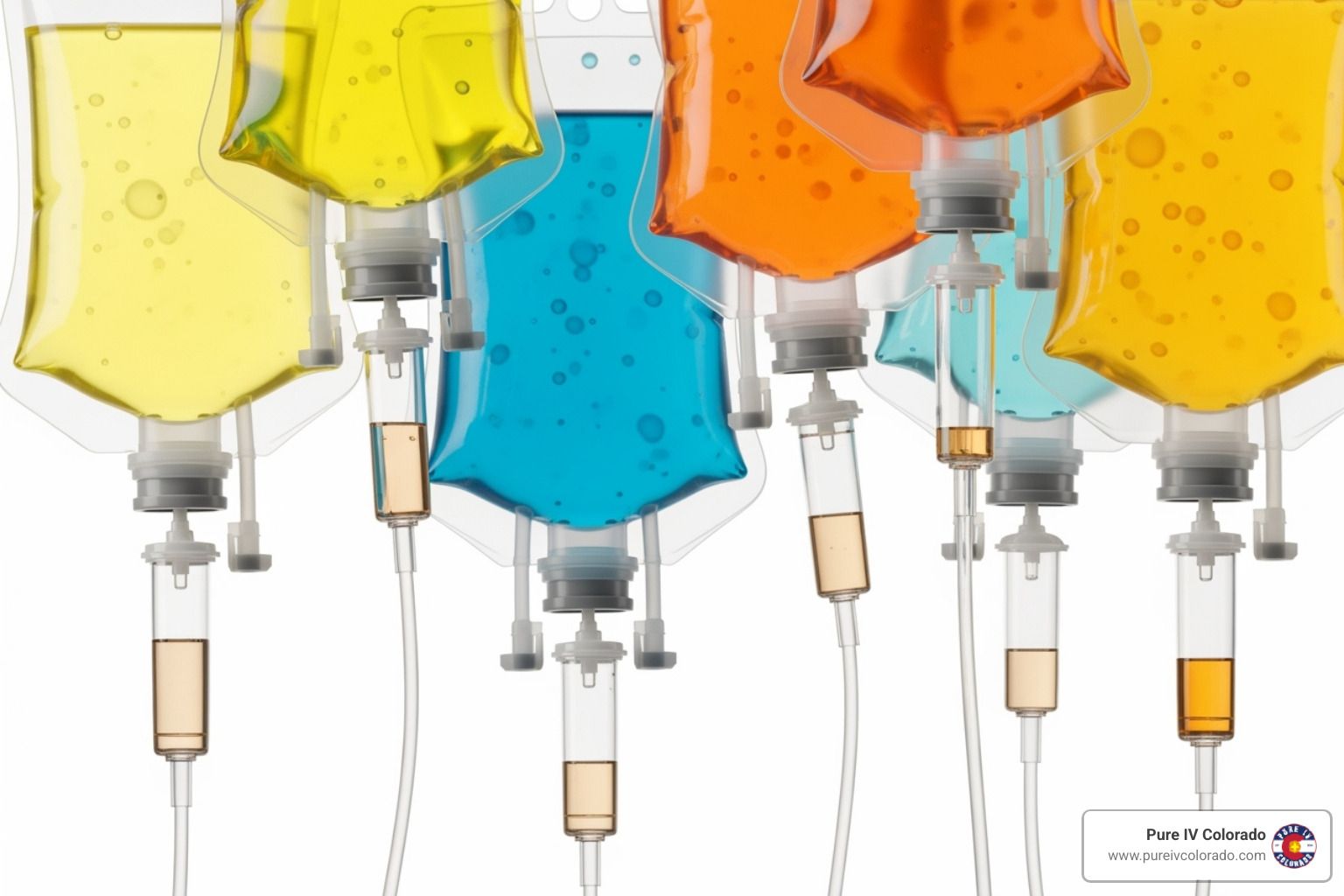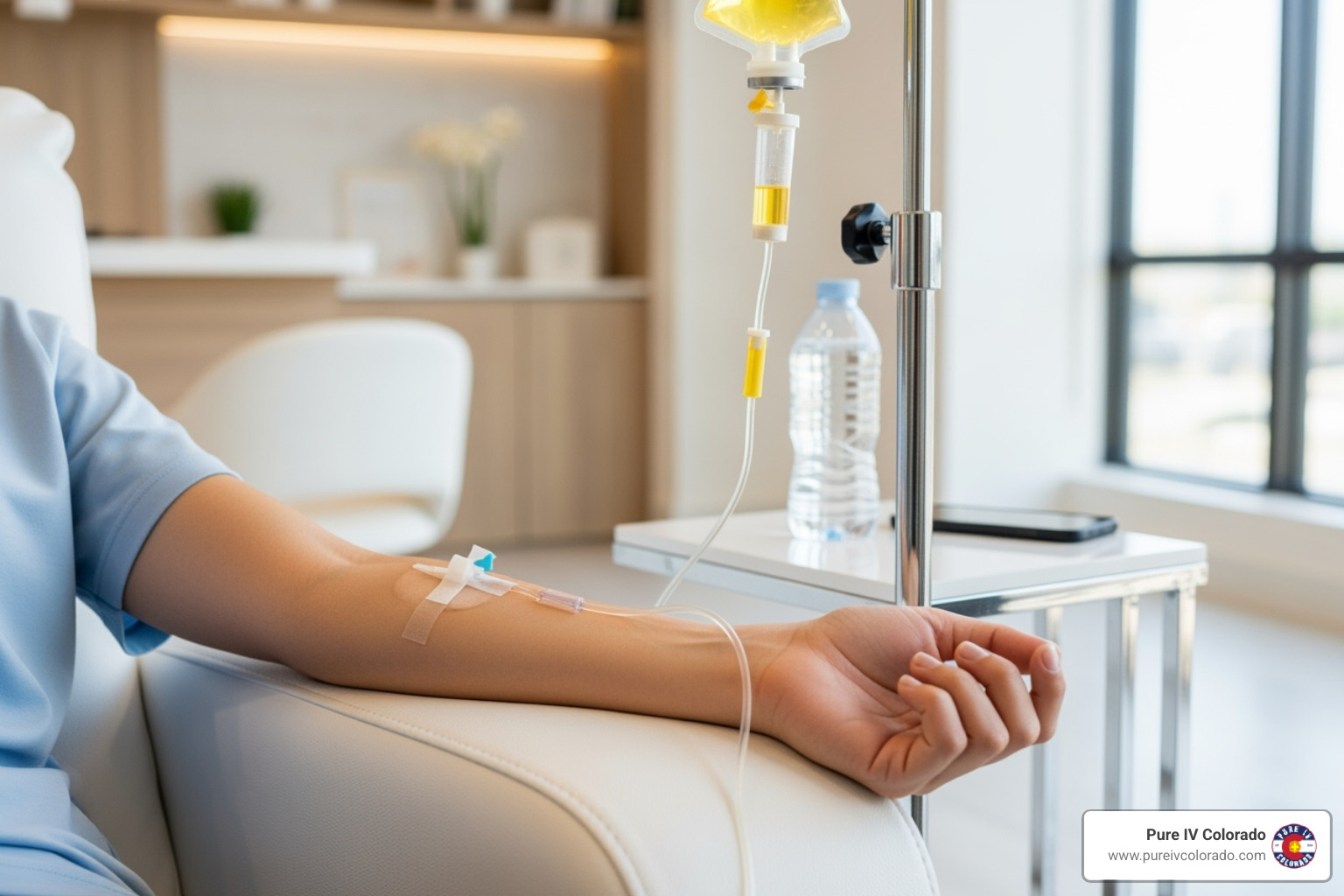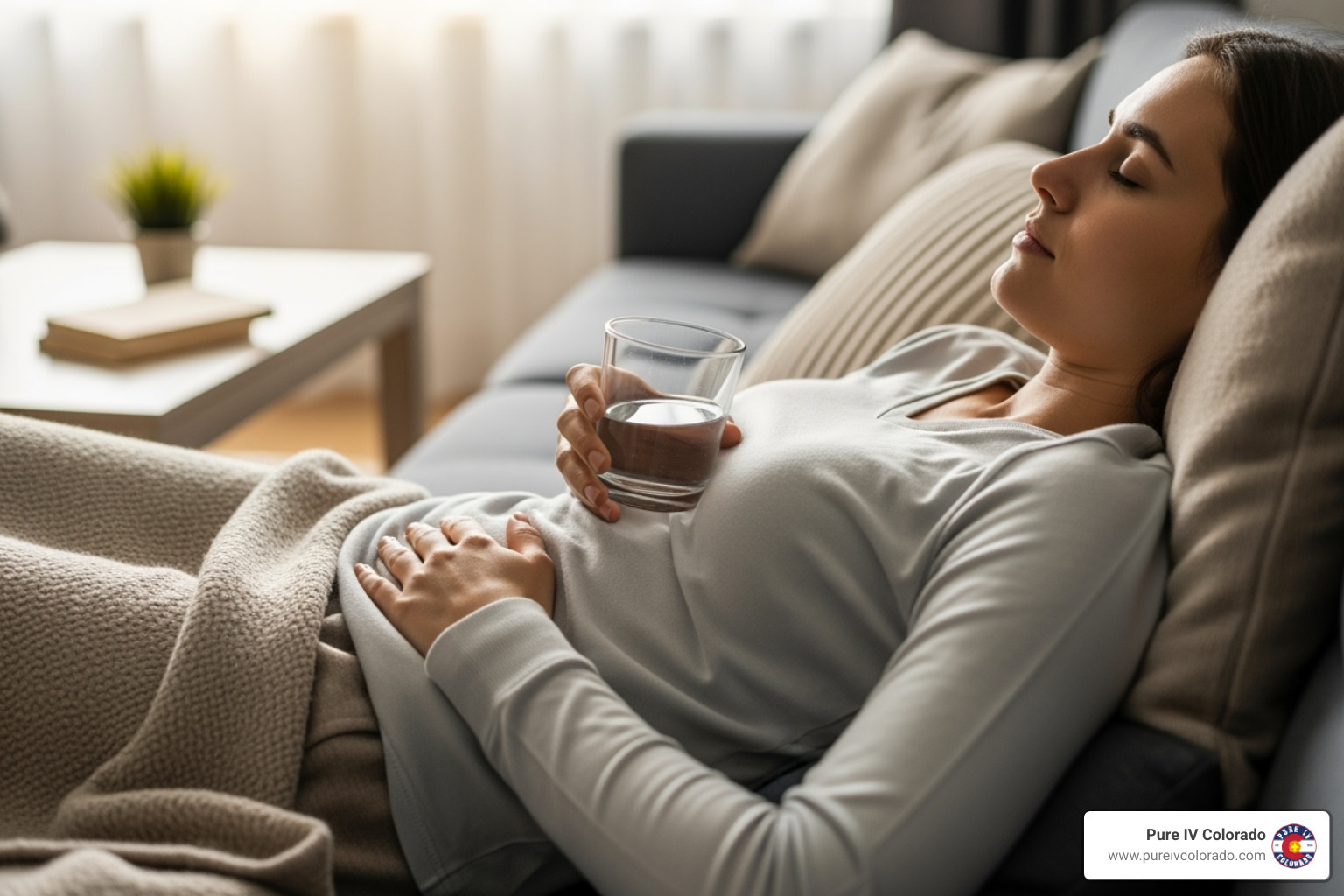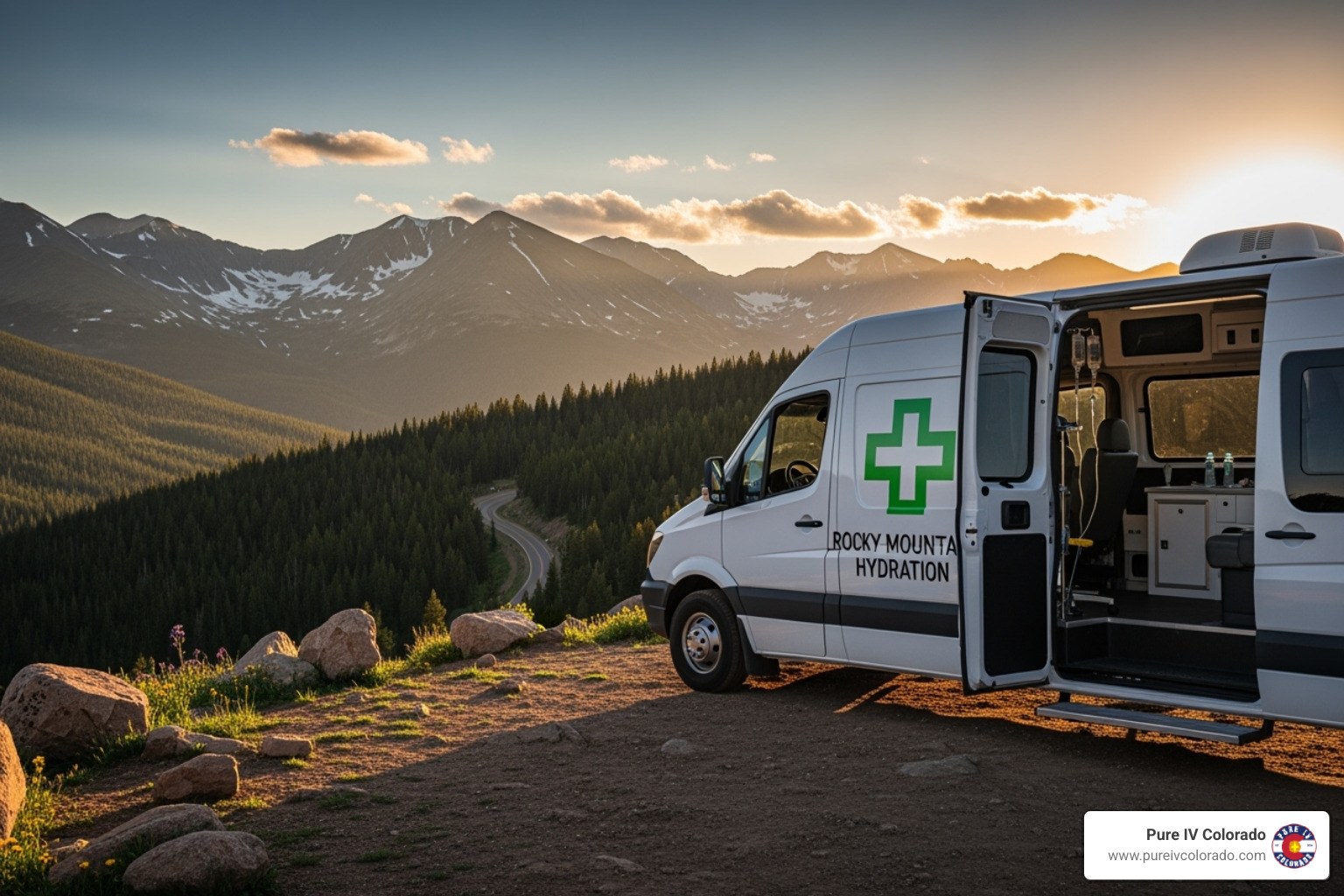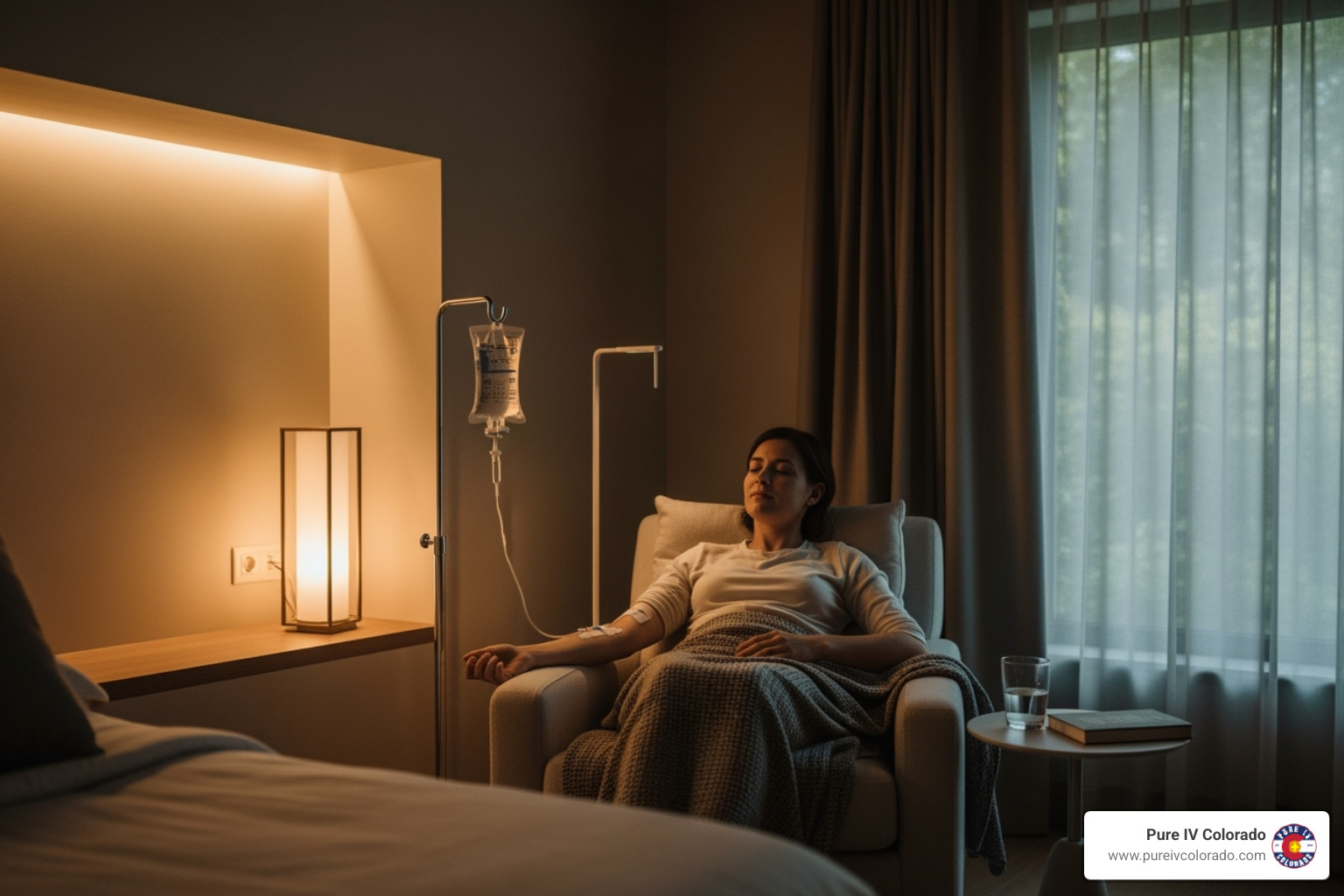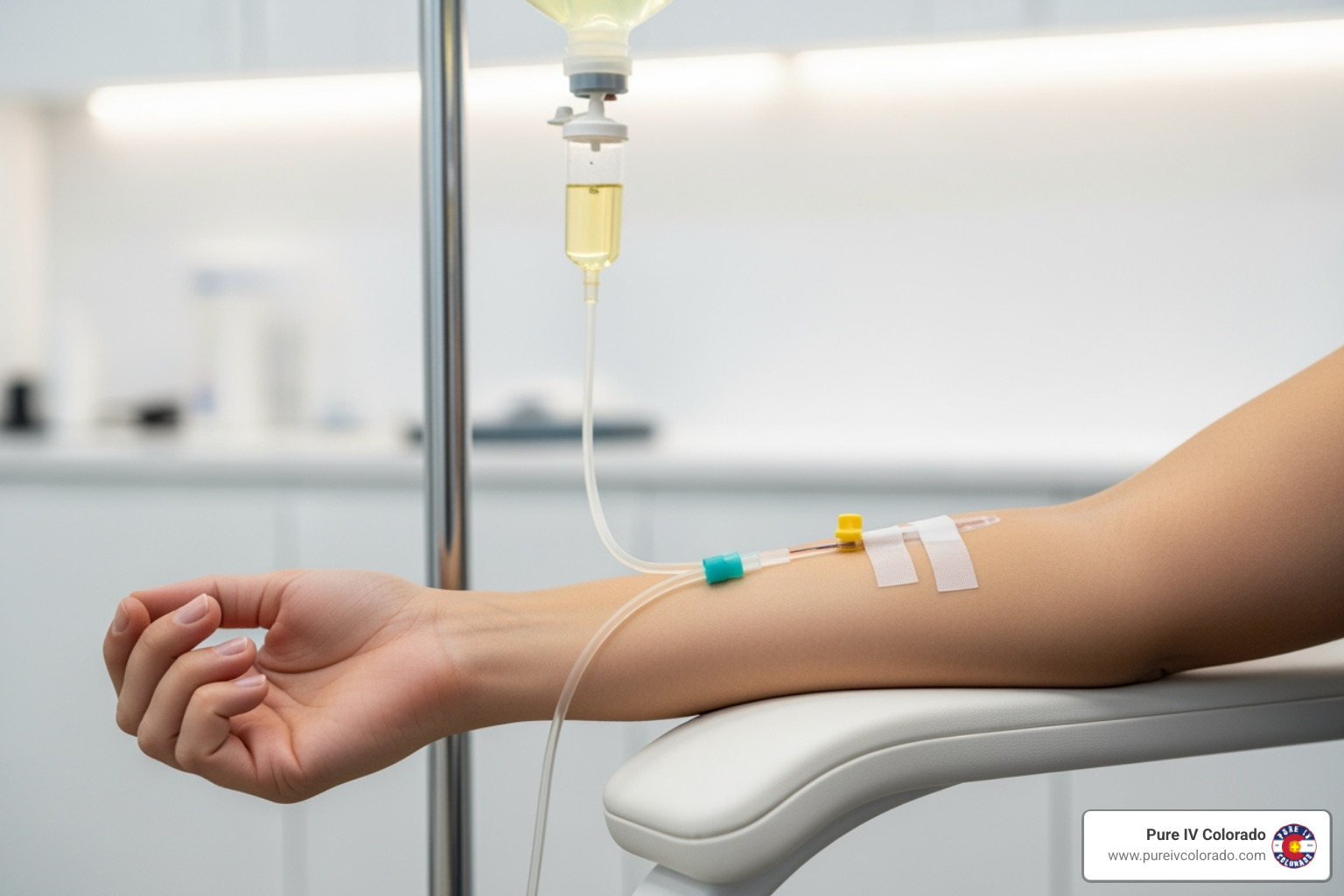2-Day Hangover: Why It Happens and How to Recover Faster
Waking up to a hangover that still hasn’t lifted after 48 hours can be unnerving. While most hangovers settle within a day, some people keep dealing with headache, fatigue, nausea, sensitivity to light, and brain fog into day two, what many call a “2-day hangover.”
In this guide, we’ll explain why a hangover can linger, what symptoms to expect, and practical ways to recover faster at home. We’ll also note when extra support like mobile IV hydration may help; in Colorado, Pure IV Colorado offers these services so you can make an informed, safe plan to feel better.
Why a Hangover Can Last 2 Days
Most hangovers fade within 12–24 hours, but sometimes symptoms stretch into day two. As the liver breaks ethanol into acetaldehyde, a more toxic by product, clearance takes time, and higher intake or slower metabolism can prolong effects. Darker spirits with more congeners may also intensify and lengthen symptoms.
Dehydration and electrolyte loss are major drivers. Alcohol’s diuretic effect pulls out fluids and minerals like sodium, potassium, and magnesium, so rehydrating and rebalancing isn’t instant after heavy losses. This keeps fatigue, dizziness, and brain fog lingering.
Inflammation and poor sleep quality add to the problem. Alcohol triggers immune messengers that heighten aches and headaches, while it fragments sleep and reduces restorative REM and deep stages. Even long sleep can feel unrefreshing.
Blood sugar dips layer on more fatigue and shakiness. Alcohol can blunt the liver’s glucose release, especially if you drank on an empty stomach amplifying weakness or anxiety. Severity ultimately depends on how much and how quickly you drank, the types of drinks, and individual health factors.
What Are the Common Symptoms of a 2-Day Hangover?
A hangover that lingers into day two often feels different from the usual “morning after.” Instead of easing up, symptoms can persist or come in waves. Here are the most common signs people report when a hangover lasts 48 hours.
Physical symptoms
- Fatigue and overall weakness
- Headache or migraine
- Nausea, vomiting, or stomach upset
- Muscle aches and body soreness
- Dizziness or feeling lightheaded
Sensory and cognitive symptoms
- Sensitivity to light and sound
- Brain fog and trouble concentrating
- Slowed thinking or reduced alertness
Mood and psychological symptoms
- Anxiety (“hangxiety”)
- Irritability or restlessness
- Low mood or feeling down
How to Recover from a 2-Day Hangover
Recovering from a hangover that drags into a second day involves both gentle self-care at home and, in some cases, more advanced support when symptoms overwhelm your body’s ability to heal. The goal is to give your system exactly what it needs: fluids, nutrients, rest, and time.
1. At-Home Remedies
- Hydration is foundational
Alcohol causes fluid loss (diuresis), so replenishing with water or broths is vital. While rehydration eases many hangover symptoms, dehydration and overall hangover severity don’t always move in lockstep, so water helps, but it isn’t a cure-all. Adding electrolyte-rich drinks (sports drinks, coconut water, or oral rehydration solutions) may help replace sodium, potassium, and other minerals; evidence for shortening the hangover is mixed, but many people report symptom relief.
- Eat light, balanced meals
Low blood sugar can worsen headache, nausea, and fatigue. Choose gentle foods like bananas, toast, oatmeal, eggs, or soup to restore glucose and provide easy-to-digest nourishment. Foods that supply zinc, B-vitamins, and antioxidants may support normal metabolism and recovery.
- Rest and light movement
Extra sleep helps your immune, neurological, and metabolic systems recalibrate remember alcohol often disrupts REM and deep sleep, so a full reset can take more than one night. Short, easy walks or light stretching can boost circulation and mood, but avoid intense exercise until dizziness and nausea resolve.
- Use over-the-counter (OTC) medicines cautiously
NSAIDs (like ibuprofen) may reduce headache or body aches but can irritate the stomach or stress kidneys. Be careful with acetaminophen after heavy drinking due to added liver load. Simple options like antacids or ginger tea can help settle an irritated stomach.
2. Faster Recovery with IV Therapy
For especially stubborn symptoms, intense nausea, inability to keep fluids down, or signs of prolonged dehydration, IV hydration can offer more immediate support. A well-designed hangover IV typically includes fluids, electrolytes, B-complex vitamins, magnesium, and, when appropriate, medications for nausea or pain. IV therapy isn’t a magic cure and won’t speed up liver metabolism of alcohol, but it can:
- Restore fluid and electrolyte balance quickly
- Provide vitamins and cofactors you may be depleted in
- Reduce nausea and improve comfort so eating and resting become feasible
At Pure IV Colorado, our mobile IV service brings this option to your home, hotel, or office. It’s intended as a supplemental boost when symptoms are dragging on and disrupting daily life, not a replacement for rest, nutrition, or medical care when red-flag symptoms are present.
What’s Inside a Hangover IV and How It Helps
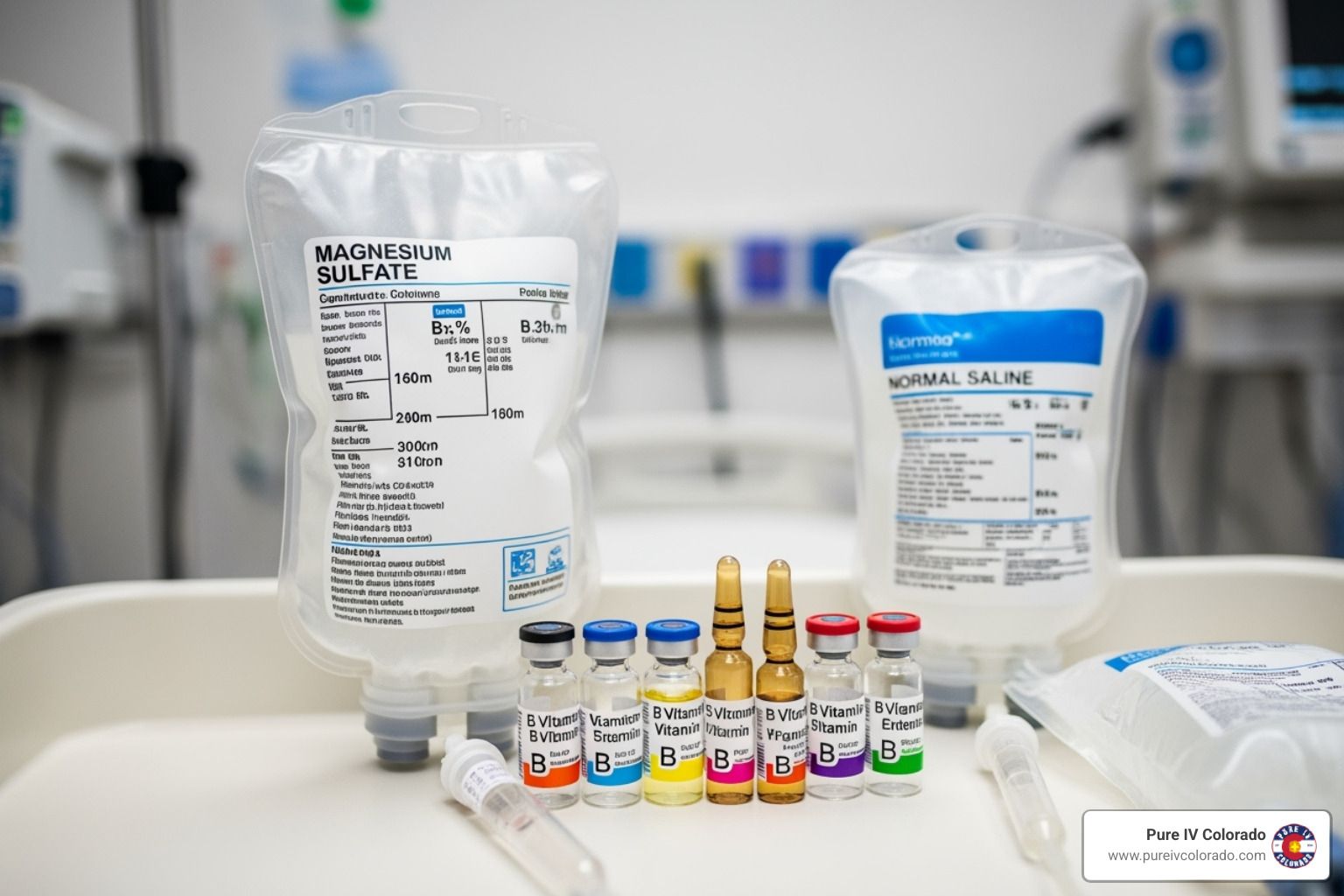
A hangover IV is designed to give your body fast hydration and targeted nutrients to ease the symptoms that linger after heavy drinking.
- Fluids (Normal Saline or Lactated Ringer’s) – restore hydration quickly
- Electrolytes (sodium, potassium, magnesium) – rebalance minerals lost through urination
- B-Complex Vitamins (B1, B2, B3, B5, B6) – support energy and nerve function
- Vitamin B12 – boosts energy and mental clarity
- Vitamin C – provides antioxidant support and immune boost
- Magnesium – helps relax muscles and ease headaches
- Anti-nausea medication (e.g., ondansetron/Zofran) – reduces queasiness
- Anti-inflammatory/pain relief (e.g., ketorolac/Toradol) – relieves headache and body aches
At Pure IV Colorado, these ingredients are blended based on individual needs, making it easier to rehydrate, regain energy, and feel well enough to recover comfortably.
How to Prevent a 2-Day Hangover and When to Seek Help
Stay ahead of a lingering hangover by prepping before you sip: hydrate during the day, then alternate alcohol with water; eat a balanced meal with protein and complex carbs; avoid mixing drinks and sugary mixers; pace yourself and set a cutoff so you’re not stacking drinks before bed. Afterward, prioritize real sleep and a gentle morning reset fluids with electrolytes, light food (toast, eggs, oatmeal, broth), and a short walk to get circulation moving.
Know the red flags that need medical attention: vomiting that lasts more than 24 hours, inability to keep fluids down, confusion, chest pain, seizure, slow or irregular breathing, or signs of severe dehydration. IV therapy can support recovery by restoring fluids and easing nausea, but it doesn’t replace medical care for serious symptoms. Seek urgent help if any warning signs appear.
Final Take: Recover Smarter, Not Slower
A 2-day hangover doesn’t mean you did anything “wrong”—it usually means your body needs a bit more time and support to rebalance. Keep it simple and kind to yourself: steady fluids with electrolytes, light meals to lift blood sugar, real sleep, and gentle movement to shake off the fog. If oral hydration isn’t cutting it, IV therapy can be a helpful assist to restore fluids, electrolytes, and comfort so you can eat, rest, and reset; just remember it complements recovery and doesn’t replace medical care if serious symptoms appear.
Still feeling wiped after 48 hours? Book our mobile hangover IV with Pure IV Colorado in any of the locations we serve and recover comfortably at home.
